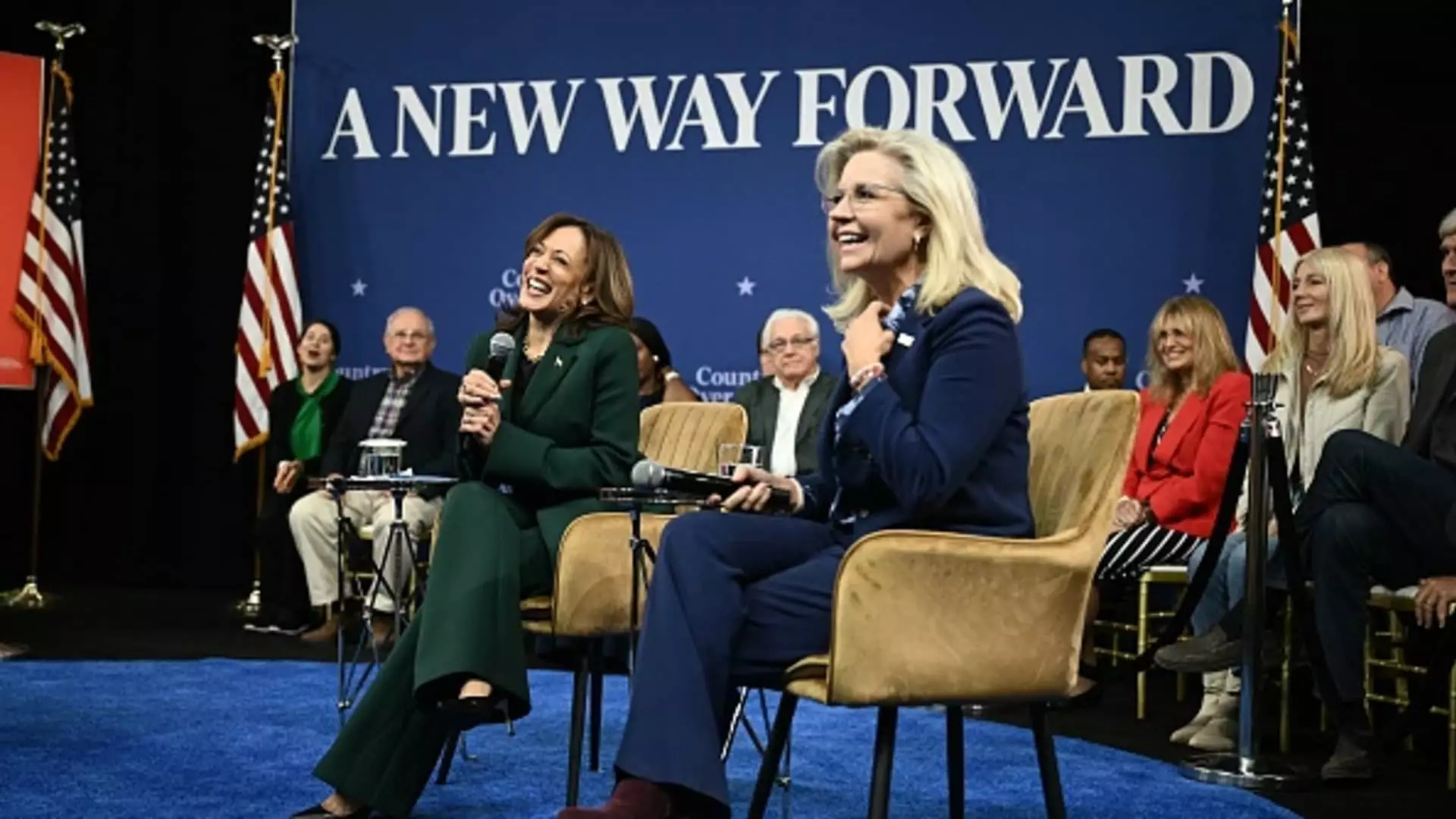In a striking turn of events, Vice President Kamala Harris and former Republican Representative Liz Cheney have emerged as unexpected allies in the politically charged environment of the 2024 U.S. presidential race. Their recent series of conversations spanning crucial battleground states—Pennsylvania, Michigan, and Wisconsin—reflect a growing sentiment among some voters that transcends traditional party lines. Cheney, a notable figure in the Republican Party known for her outspoken criticism of former President Donald Trump, articulated her stance succinctly: “It’s not about party, it’s about right and wrong.” This assertion sets the tone for a complex political landscape where ideology and morality face off against partisan loyalty.
As Cheney engages with Harris, she underscores the importance of individual conscience in voting decisions. Her appeal to Republicans to prioritize their values over party affiliation signals a potential shift for disaffected GOP voters who may feel alienated by their party’s current direction. Cheney emphasizes this message: “You can vote your conscience and not ever have to say a word to anybody. And there will be millions of Republicans who do that on Nov. 5.” This rallying cry indicates a significant opportunity for Harris to connect with a faction of the Republican electorate that is searching for alternative representation.
Delving deeper into Cheney’s endorsement of Harris, one can observe her framing of the political decision as fundamentally rooted in loyalty to the Constitution. She stated that her conservative principles compel her to support a candidate who “has been faithful to the Constitution.” In this regard, Cheney casts her support for Harris as a moral imperative, pitting the vice president against Trump’s administration, which she argues failed to honor constitutional duties. This narrative positions Cheney as a guardian of traditional conservatism, contrasting sharply with the direction the party has taken under Trump’s influence.
Cheney’s remarks about reproductive rights resonate with a broader national discourse following the Supreme Court’s decision to overturn Roe v. Wade. While she identifies as “pro-life,” her acknowledgment that harsh restrictions on reproductive healthcare are unsustainable reflects a growing concern among moderates and conservatives about the implications of such laws on women’s rights. Cheney states that these draconian measures must be re-evaluated, emphasizing the need for change. This aspect of their conversation shows a willingness to engage in meaningful discourse about social issues that affect Americans on both sides of the political spectrum.
A Call for Unity Against Isolationism
While Cheney’s partnership with Harris may seem focused on domestic issues, the implications of their alliance extend into foreign policy. Cheney criticizes Trump’s isolationist stance, arguing that without strong international alliances, the nation’s freedom is at risk. Her warning that Trump could undermine NATO obligations underlines the potential dangers of his foreign policy approach. With tensions rising globally, especially in relation to Ukraine’s conflict with Russia, Cheney’s critiques align with Harris’s advocacy for international solidarity and a proactive foreign policy.
Harris’s commitment to a two-party system and her assertion that “we need to be able to have these good, intense debates about issues that are grounded in fact” reflect a desire for a more collaborative political environment. This perspective resonates with moderates who have grown weary of hyper-partisanship and divisive politics that often overshadow substantive discussions on pressing issues.
The Harris campaign’s strategy to attract disaffected Republicans, symbolized by the creation of the “Republicans for Harris” group, showcases a proactive approach to coalition-building. Cheney’s involvement validates this effort and provides a “permission structure” for Republicans hesitant to support a Democrat. Her insistence that patriotic Republicans have a duty to act in the best interest of the country offers a compelling narrative that could mobilize a segment of the electorate ready for change.
Overall, the alliance between Harris and Cheney could redefine political loyalties in the upcoming election cycle. As they engage with voters across battleground states, they embody a newer, more complex brand of bipartisanship, one that encourages voters to prioritize shared values over outdated party allegiances. As they continue their dialogues, the implications for the 2024 presidential race become increasingly significant, suggesting the emergence of a political landscape marked by collaboration rather than conflict. This is a critical juncture for American democracy, where the choices made today may shape the country’s direction for years to come.


Leave a Reply